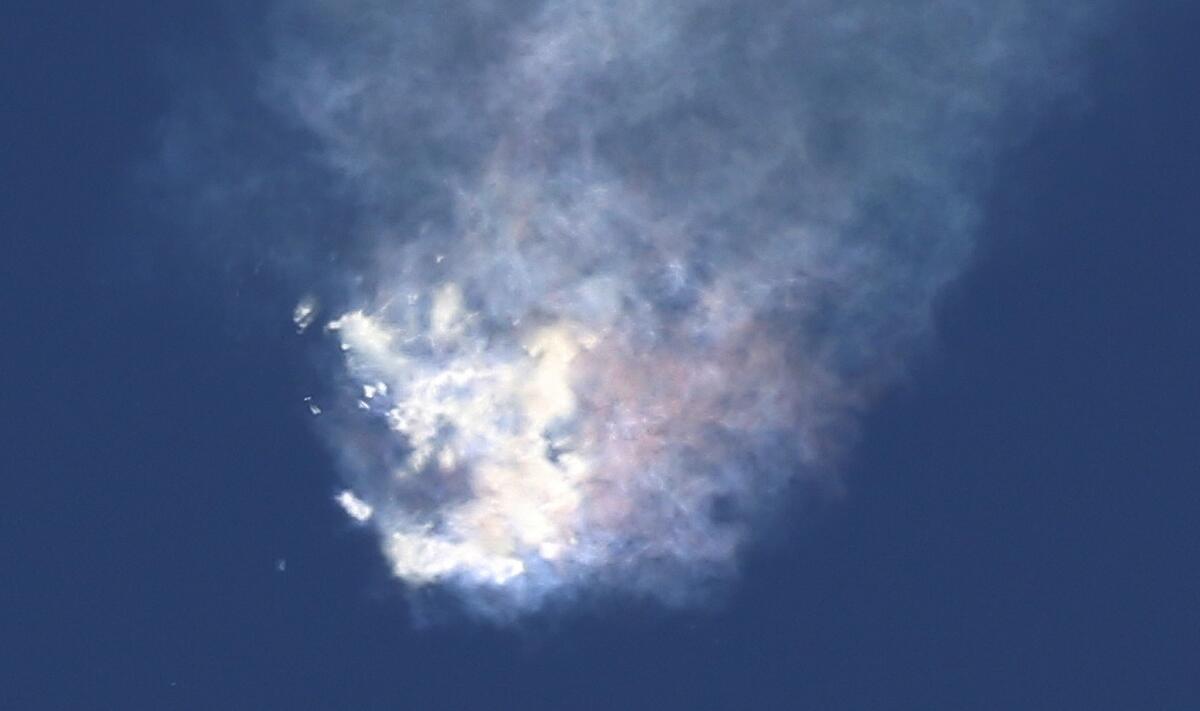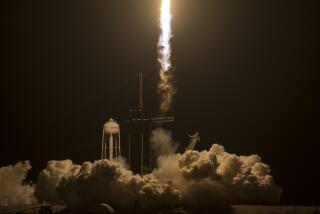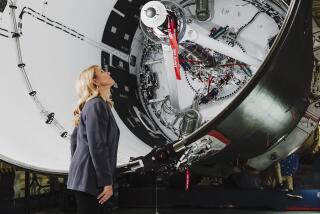SpaceX says it will launch in December

A SpaceX rocket explodes two minutes after its launch in June from Cape Canaveral Air Force Station.
Entrepreneur Elon Musk’s SpaceX said Friday that it plans to resume launches by mid-December — about six months after the fiery loss of its unmanned rocket that was carrying cargo to the International Space Station.
The Hawthorne aerospace company is still completing its investigation into the June 28 disaster, which cost NASA and taxpayers tens of millions of dollars. The firm expects to submit that report to the Federal Aviation Administration early next month.
Musk said in July that a preliminary review had pointed to a faulty 2-foot-long steel strut. The metal band was holding one of a number of helium-filled bottles inside the rocket’s second stage.
He said SpaceX would now test every strut and not rely on a subcontractor’s certification of their strength.
The company’s next launch also will be the first flight of an upgraded Falcon 9 rocket, which has been redesigned for more power.
SpaceX said it had agreed with two satellite companies that had purchased its next two launches to switch flight dates so that it could perform a special test of its second-stage engine on the first flight.
That flight will carry 11 small satellites for Orbcomm, a New Jersey company. SpaceX plans to release the satellites into orbit and then refire the second-stage engines in the test.
The second launch, scheduled for late December, will carry a communications satellite for SES, a company in Luxembourg. That satellite must go into a higher orbit, requiring the refiring of the second-stage engines.
SpaceX, officially known as Space Exploration Technologies Corp., has orders for roughly 50 launches, including from NASA, the Air Force, foreign governments and commercial satellite companies.
The Falcon 9 had flown successfully 18 times before the June explosion, which happened just two minutes after liftoff from Cape Canaveral in Florida.
The failure was the third disaster for America’s commercial space industry in less than a year. On Oct. 28, another rocket carrying supplies to the space station for NASA exploded just after liftoff. That flight was operated by Orbital ATK.
Three days later, Virgin Galactic’s SpaceShipTwo broke up during a test flight high above the Mojave desert, killing one of two pilots.
Twitter: @melodypetersen
More to Read
Inside the business of entertainment
The Wide Shot brings you news, analysis and insights on everything from streaming wars to production — and what it all means for the future.
You may occasionally receive promotional content from the Los Angeles Times.







